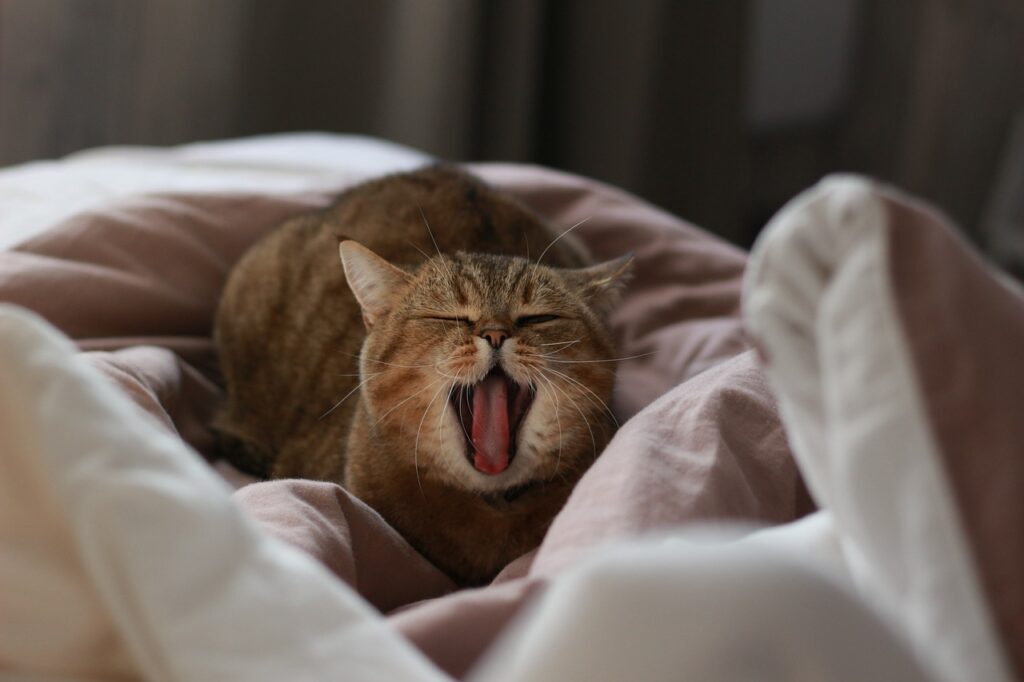Can Cats Eat Eggs? – Yes, They can
Cats are often curious about what we eat, and it’s not uncommon for them to be interested in eggs. The great news is that yes, cats can eat eggs. Eggs can be a good source of protein and other nutrients for kitties, but there are a few things to keep in mind. Serving eggs to your feline friend should be done as an occasional treat and not as a main part of their diet. Always cook the eggs thoroughly to avoid the risk of foodborne diseases like salmonella, and make sure to avoid any added oils or seasonings.
Can Kittens Eat Eggs?
Much like adult cats, kittens can eat eggs, but with more caution. Feeding eggs to kittens should be approached with moderation and care. Kittens have sensitive digestive systems, and introducing new foods can sometimes lead to upset stomachs or allergies. While eggs can be a beneficial protein source, they should only be a small part of a kitten’s diet, which must be primarily formulated for their growth and development needs.
Things to consider when feeding eggs to kittens?
When feeding eggs to kittens, ensure that the egg is fully cooked to avoid the risk of salmonella. Remember that kittens need a variety of nutrients to grow strong and healthy, and their diet should be specially formulated for their young age. Consult with a veterinarian before introducing eggs or any new food into your kitten’s diet to ensure it’s suitable for their specific health needs and to figure out the right serving size.
Nutritional Benefits of Eggs for Cats – Why Eggs are Good for Cats?
High-Quality Protein
Eggs are a fantastic source of high-quality protein, essential for maintaining your cat’s muscle mass and supporting their overall health.
Amino Acids
Eggs contain essential amino acids that cats require, helping them to maintain a luscious coat and robust skin health.
Vitamins and Minerals
They are packed with vital vitamins like vitamin B12, riboflavin, and selenium, which support metabolic processes and immune health.
Fatty Acids
Eggs also provide fatty acids that can help in optimizing your cat’s energy levels and promoting a silky coat.
Low Carbohydrate Content
For cats, who are obligate carnivores, the low carbohydrate content of eggs makes them an excellent snack that doesn’t disrupt their dietary needs.
Potential Allergies: Can Cats Be Allergic to Eggs?
While it’s not common, cats can be allergic to eggs. If you’re introducing eggs to your cat’s diet for the first time, it’s important to do so gradually and watch for any signs of an allergic reaction.
Symptoms of Egg Allergies in Cats
- Digestive Disturbance: Look for signs of gastrointestinal upset, such as vomiting or diarrhea.
- Skin Irritation: Keep an eye out for excessive scratching, or signs of hives and redness on the skin.
- Respiratory Issues: In some cases, allergies can cause respiratory problems, characterized by coughing or wheezing.
What to Do If Your Cat Shows Symptoms?
- Immediate Diet Change: Eliminate eggs from the diet immediately if you notice any adverse reactions.
- Veterinary Consultation: Visit your vet as soon as possible to get a proper diagnosis and treatment plan.
- Ongoing Monitoring: Monitor your cat’s diet and behavior closely after the allergic reaction to prevent recurrence.
Recommended Amount: How Much Eggs Can a Cat Consume?
When it comes to feeding your cat eggs, moderation is key. A small chunk of cooked egg can be given as a treat, not exceeding more than 10% of your cat’s daily dietary intake. Always remove the eggshell and ensure the egg is cooked thoroughly without oils or seasonings.
Things to Consider When Feeding Eggs to Cats
Remember that eggs should be an occasional treat and not replace a balanced feline diet. Eggs do not contain taurine, which is a crucial amino acid for cats, so make sure your furry friend is still getting a complete and balanced diet suited to their needs.
How to Feed Eggs to Cats: A Quick Guide
Eggs can be a nutritious addition to your cat’s diet. When given properly, they not only offer health benefits but can also be a tasty snack for your feline.
Simple Scrambled Egg
Cook a small amount of egg (without milk or seasonings) in a non-stick pan, scramble gently, and let it cool before serving as a treat.
Poached Perfection
Poach an egg ensuring the yolk is fully cooked. Chop it into small, bite-sized pieces suitable for your cat’s size.
Baked Egg Delight
Bake an egg in an oven-safe dish without any additives. Once cooled, slice it into small treats for your cat to enjoy.
Conclusion
While eggs can be a healthy snack for cats, they should be given in moderation as a complement to a balanced diet. It’s vital to serve eggs cooked and plain, keep an eye out for allergies, and consult with a veterinarian for personalized advice. By following these guidelines, you can safely include eggs as a delicious treat in your cat’s diet.



